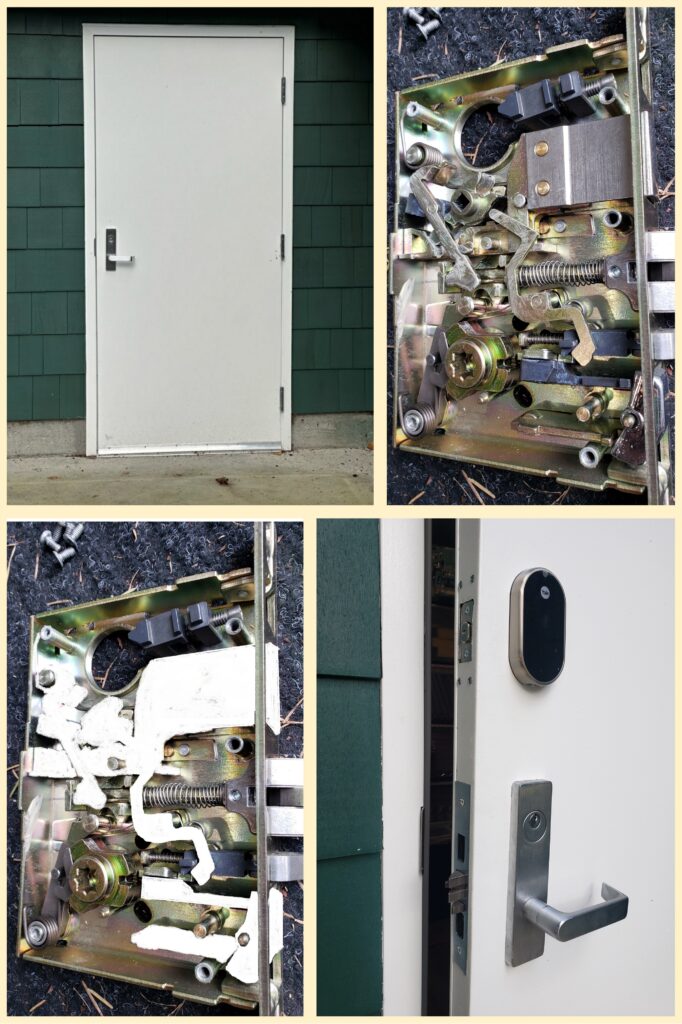As we’ve all seen, it’s increasingly popular to replace traditional key-operated locks with electronic keypad locks. When doing so, it’s generally best to make the keyless lock the only piece of locking hardware on the door. Otherwise it is almost inevitable that at some point the other hardware will get locked and someone who does not expect to need a key will be locked out. A challenge arises when a customer wants to have keyless entry on a door that has a mortise lock.
This is not usually a simple lock swap. As it stands, the keyless options for mortise locks are mostly aimed at commercial users. They lack the affordability and user friendliness of the locks commonly offered for residential applications, and they’re not front-door pretty. But the residential keypad locks we get from the big retailers require a door preparation that is completely different from that of mortise locks. Replacing an expensive and sometimes very old mortise lock with a tubular lock entails covering or filling old holes in the door and making new ones. There are different ways of doing this, which range from labor-intensive to unattractive. It’s tempting to leave the mortise lock as it is and just add a residential keyless deadbolt higher on the door, but mortise locks are notorious for causing lockouts even when people are accustomed to using keys, so this is not a good solution.
The least hardware- and labor-intensive solution (read: quickest and cheapest) is often to modify the existing mortise lock so that it only functions as a passage handle, and then install the new keypad deadbolt above it. That’s what I did to the door in the accompanying photo. It is a commercial-style door that the customer wanted to use a specific residential keypad on. I opened up the mortise lock body, which looks like a steampunk Rube Goldberg project inside, and plucked out a bunch of the parts that make it lock. The faceplate was left with two empty spaces where locking elements used to be, and the keyed cylinder is no longer functional. For a more finished look we could have replaced the faceplate with one that didn’t have those holes and replaced the cylinder with a dummy, but the customer deemed it unnecessary.
It’s possible that this post will be a curious internet fossil within a couple of years, as lock manufacturers are rapidly putting out new products to meet the growing demand for keyless entry. Until then, my advice, when practical, will be to leave your beautiful front door as it is and put the keypad lock on the mudroom door, which rarely has a mortise lock on it.


 Commercial
Commercial 

